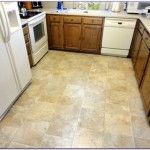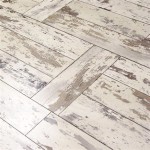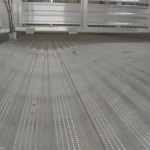Lumber Liquidators Laminate Flooring Recall: A Comprehensive Overview
The Lumber Liquidators laminate flooring controversy, centered around concerns regarding elevated levels of formaldehyde in its products, became a significant issue in the mid-2010s. This situation led to numerous lawsuits, regulatory scrutiny, and ultimately, a recall of specific products. This article provides a detailed examination of the events, the health concerns associated with formaldehyde, the specifics of the recall, and the subsequent impact on Lumber Liquidators and its customers.
Formaldehyde is a naturally occurring colorless gas with a pungent odor. It is widely used in the manufacturing of various products, including resins, adhesives, textiles, and building materials. In the context of flooring, formaldehyde-based resins are often used to bind wood particles together in the production of laminate and engineered wood flooring.
While formaldehyde is a useful industrial chemical, it is also a known human carcinogen. The International Agency for Research on Cancer (IARC) classifies formaldehyde as carcinogenic to humans based on sufficient evidence that it causes nasopharyngeal cancer (cancer of the upper part of the throat) and leukemia. Even at relatively low concentrations, formaldehyde exposure can cause a range of adverse health effects, including eye, nose, and throat irritation; coughing; wheezing; skin rashes; and allergic reactions. Individuals with pre-existing respiratory conditions, such as asthma, may be particularly sensitive to formaldehyde exposure.
The controversy surrounding Lumber Liquidators' laminate flooring began in 2015 when a 60 Minutes report highlighted potential health risks associated with the flooring. The report alleged that Lumber Liquidators had been selling laminate flooring sourced from China that did not meet U.S. formaldehyde emission standards. Specifically, the report claimed that some of the flooring contained significantly higher levels of formaldehyde than permitted under regulations established by the California Air Resources Board (CARB).
The allegations were based on testing conducted by 60 Minutes using flooring samples purchased from Lumber Liquidators stores. The tests reportedly revealed formaldehyde levels that were several times higher than the allowable limits. Following the 60 Minutes report, numerous class-action lawsuits were filed against Lumber Liquidators, alleging that the company had knowingly sold flooring that posed a health risk to consumers. These lawsuits sought damages for medical monitoring, property damage, and emotional distress.
In response to the allegations, Lumber Liquidators initially defended its products and claimed that they were compliant with all applicable regulations. The company conducted its own testing, which it said showed that its flooring met formaldehyde emission standards. However, independent testing conducted by government agencies and private organizations generally supported the findings of the 60 Minutes report, indicating that some of Lumber Liquidators' laminate flooring did indeed contain elevated levels of formaldehyde.
The Consumer Product Safety Commission (CPSC) also investigated the issue and issued a statement advising consumers who had purchased Lumber Liquidators laminate flooring to take steps to reduce formaldehyde exposure, such as increasing ventilation and using air purifiers. The CPSC also recommended that consumers consult with a healthcare professional if they experienced any health problems that they believed could be related to formaldehyde exposure from the flooring.
The Formal Recall
In May 2015, Lumber Liquidators announced a recall of certain laminate flooring products manufactured in China and sold between 2012 and 2015. This recall specifically targeted laminate flooring with the "8mm" thickness that was sold under the brand name "Dream Home." The recall involved millions of square feet of flooring and affected thousands of customers. The company offered to provide free testing of affected flooring and, if elevated formaldehyde levels were confirmed, to reimburse customers for the cost of replacing the flooring.
The terms of the recall were subject to ongoing legal challenges and refinements. Initial offers from Lumber Liquidators were perceived by many customers as inadequate, leading to further litigation and negotiation. The scope and details of the compensation and remediation process evolved over time as the legal proceedings progressed.
The recall process involved customers submitting claims, providing proof of purchase, and arranging for testing of their flooring. Lumber Liquidators contracted with third-party testing companies to conduct the formaldehyde testing. If the results of the testing showed that the flooring exceeded the allowable formaldehyde levels, customers were eligible for reimbursement for the cost of replacing the flooring. However, the reimbursement process was often complex and time-consuming, and many customers reported difficulties in obtaining full compensation for their losses.
The recall focused specifically on the "Dream Home" 8mm laminate flooring because this product line was identified as having the highest likelihood of containing elevated formaldehyde levels. Other laminate flooring products sold by Lumber Liquidators were not included in the recall, although some customers with other types of Lumber Liquidators flooring still filed claims, alleging that they had also been exposed to elevated levels of formaldehyde.
Impact on Lumber Liquidators
The laminate flooring controversy had a significant impact on Lumber Liquidators' reputation, financial performance, and legal standing. The company's stock price plummeted following the 60 Minutes report and the subsequent investigations. Sales declined sharply as customers lost confidence in the company's products. Lumber Liquidators also faced substantial legal costs associated with defending itself against the numerous lawsuits and settlements.
In 2016, Lumber Liquidators reached a settlement in a class-action lawsuit brought by shareholders who alleged that the company had misled them about the formaldehyde levels in its flooring. As part of the settlement, Lumber Liquidators agreed to pay $36 million to the shareholders. In addition to the shareholder settlement, Lumber Liquidators also reached a settlement with the U.S. Department of Justice (DOJ) related to the company's importation of illegally harvested timber. As part of the settlement, Lumber Liquidators agreed to pay over $13 million in penalties and restitution.
The company underwent significant management changes in the wake of the scandal. Key executives, including the CEO, were replaced as the company sought to rebuild its reputation and regain the trust of its customers and investors. Lumber Liquidators also implemented stricter quality control measures and sourcing policies to ensure that its products met all applicable regulations.
The financial repercussions of the scandal were considerable. Beyond the settlement payments, the company incurred significant costs associated with the recall, testing, and remediation efforts. The reputational damage also translated into lost sales and a decline in market share. Lumber Liquidators faced an uphill battle to restore its brand image and regain the confidence of consumers.
Health Concerns and Long-Term Effects
The primary concern surrounding the Lumber Liquidators laminate flooring was the potential for long-term health effects resulting from formaldehyde exposure. While short-term exposure to formaldehyde can cause irritation and allergic reactions, chronic exposure has been linked to more serious health problems, including cancer. It's essential to differentiate between correlation and causation. While studies have established a link between formaldehyde exposure and certain cancers, it is difficult to definitively prove that exposure to formaldehyde from the flooring directly caused a specific individual to develop cancer.
The latency period for cancer can be quite long, meaning that it may take many years or even decades after exposure to a carcinogen for cancer to develop. This makes it challenging to establish a direct causal link between exposure to formaldehyde from the flooring and the subsequent development of cancer. Furthermore, many other factors can contribute to the development of cancer, including genetics, lifestyle, and environmental exposures.
The health risks associated with formaldehyde exposure depend on several factors, including the concentration of formaldehyde, the duration of exposure, and individual susceptibility. People who spend a significant amount of time in homes or offices with elevated formaldehyde levels are at a higher risk of experiencing adverse health effects. Children, the elderly, and individuals with pre-existing respiratory conditions are also more vulnerable to the effects of formaldehyde exposure.
The Lumber Liquidators case brought increased attention to the importance of indoor air quality and the potential health risks associated with building materials. It also highlighted the need for stricter regulations and better enforcement of formaldehyde emission standards in the flooring industry. The case served as a reminder that consumers need to be vigilant about the products they purchase and to demand transparency and accountability from manufacturers and retailers.
The long-term health effects on individuals exposed to elevated formaldehyde levels from Lumber Liquidators laminate flooring remain a concern. Many individuals who purchased the flooring have undergone medical monitoring to assess their risk of developing health problems. Ongoing research is needed to fully understand the long-term health consequences of formaldehyde exposure at the levels experienced by those affected by the Lumber Liquidators flooring scandal.

Lumber Liquidators Laminate Flooring Recalled From S Amid Formaldehyde Problems Aboutlawsuits Com
Lumber Liquidators Recalls Chinese Laminate Flooring

Lumber Liquidators Inc Stock Wed Because Of Cdc Math Error Fox Business

Lumber Liquidators Class Action Lawsuit Filed Over Formaldehyde Flooring In Aboutlawsuits Com

Here S How To File A Claim For Your Piece Of The Lumber Liquidators Settlement

Lumber Liquidators Linked To Health And Safety Violations Cbs News

Lumber Liquidators Agrees To Recall Test Possibly Contaminated Floors Cbs News

And Picking Oak Hardwood Flooring Young House Love

Lumber Liquidators Agrees To Settle China Made Flooring Class Actions For 36m

Lumber Liquidators Defends Its S After 60 Minutes Report Npr
Related Posts








